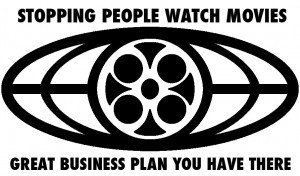Welcome to yet another edition of the WNR. It was either still a relatively quiet week, or that I just haven’t gotten back into “work mode” yet. I actually made two new year resolutions this year, one was to work hard, the other was to play hard. A week later, I’ve definitely managed to follow through on at least one of those resolutions.
In any case, we should be able to get through this one rather quickly.

And as all of the news were copyright related, this should make things go even quicker – we’ll start with the SOPA related ones. Having forced a policy change at GoDaddy, albeit one that’s still not 100% convincing, Reddit users have now decided to target politicians that support SOPA as their anti-SOPA next move.
There are quite a few politicians to choose from though, considering most of them seem to support SOPA or the senate version, PIPA. But with a few key SOPA backers not facing re-election, Reddit has decided to make an example out of rising Republican star Paul Ryan, even though he may not actually fully support SOPA. Despite Ryan’s spokesperson coming out and clarifying the Congressman’s stance on SOPA, or rather, some expertly crafted political language that implies fence-sitting without actually coming out and saying so, Reddit plans to get Ryan’s opponent, Democrat Rob Zerban, elected at the next election. A fantastic result if they can do it, but the successful completion of Operation Pull Ryan will not be easy. Bigger than the issue of SOPA for the Reddit people taking part is Paul Ryan’s controversial budget plan, as well as his support for the equally controversial National Defense Authorization Act.
But the truth is that Ryan’s fence-sitting wouldn’t have been needed just a few month ago, when SOPA was widely supported by politicians on both sides of the aisle. And that’s progress, I suppose. The popular uprising on SOPA shows that people can affect political change, and while SOPA may still get passed, those in the US still retain the right to punish those who openly supports SOPA at the next election. But as expected, it’s perhaps the industry and monied interests that are having the most effect on the weakening political support for SOPA. We already know that most tech companies are against it, but this week, it was revealed that the major gaming companies, who have long complained about web piracy, are also withdrawing support for the controversial bill. Microsoft have already distanced themselves from SOPA (and may have even been secretly working behind the scenes to get others to come out again SOPA), but now, Nintendo, Electronic Arts, and even Sony Electronics, have apparently withdrawn themselves from the official list of supporters for SOPA as well (Sony music is still very much a supporter). Now, the cynical side of me says they’re only doing it to avoid the negative attention SOPA is receiving, perhaps very much the same reasons behind GoDaddy’s change of heart, but maybe that’s the best we can expect from companies like them. Not supporting SOPA is not as good as being all out against SOPA, but at least it’s better than supporting SOPA. And if there’s one positive to come out of this whole mess, it’s probably the realization by many of the real power of the Internet, how it can empowered anyone to make a stand on issues that affect them. And that’s even more reason to fight SOPA and help protect the valuable tool that is the Internet.

MPAA using questionable calculations methods to derive losses due to piracy, and may be triple counting non existent losses
At the heart of the argument *for* SOPA is the economic damage caused by web piracy, but it’s been common knowledge that the entertainment industry frequently stretches the truths when it comes to publishing “losses” figures. So when the MPAA made the statement that they estimate there to be $20.5 billion in losses due to piracy every year, it came as no surprise to people that what most likely happened was that the MPAA simple multiplied the number of illegal downloads by the full retail cost of each piece of content. But what most didn’t know was that the MPAA’s figure manipulation went even further, by double and sometimes even triple counting the already exaggerated figures. If you have a $10 DVD, in which $2 goes to the manufacturer, $2 goes to the transportation company, and another $2 goes to the retailer, then the MPAA (or rather, the group the MPAA tasks with making the calculations, the Institute for Policy Innovation) calculates the loss by a clever bit of maths: $10 + $2 + $2 + $2 = $16. This is an absurd way to calculate losses (that people downloading a $10 DVD costs the economy $16), as this kind of methodology is usually reserved for calculating changes in output and employment.
The MPAA also fails to take into account that SOPA doesn’t affect non US visitors visiting non US websites, and most importantly, it fails to realise (or deliberately ignores) the fact that just because people save money by illegally downloading movies, it doesn’t mean they don’t spend the same money on other parts of the economy. In fact, with the economy so bad and so many families struggling, perhaps the most simple explanation for piracy is that people just don’t have the money to buy movies, preferring to spend all their money on things like food and rent instead (which means they still contribute 100% of the earnings back to the general economy) . In the past, they simply stopped watching movies, now, they don’t have to make that sacrifice as long as they can still afford a cheap-ish Internet plan. But even if the bad economy isn’t to blame, then there are so many different (and some would argue, better) entertainment choices out there, such as video games, that people may simply be shifting their resources towards other parts of the economy. Regardless, the net effect of web piracy might be zero for the overall economy if people have not been hoarding money or throwing it away, although the loss for the affected entertainment companies is still very real.
But that’s what’s actually most wrong about SOPA. It will cost tax payers 10 million dollars a year to maintain the bureaucracy for handling SOPA, and to provide pro bono legal services for billion dollars companies, courtesy of the Department of Justice. And even after all that, it may not help the overall economy at all, even if it worked to stop piracy (which it won’t). And that’s also if we don’t count the cost of damaging the Internet, innovation and other industries. It ends up being corporate welfare for the music and movie industry, and in the end, it will benefit nobody, not even the very same industries that will be better served in the long term by embracing innovation.

The Hobbit: An Unexpected Journey, just one of major releases for 2012, which will probably help Hollywood have another record year
And the industry should also take a long hard look at itself and see if there are any reasons within for their current problems. With box office receipts down in 2011 compared to the record breaking 2010, it would be easy to blame piracy. But piracy is very likely not the cause of the relatively small 3.5% decline, at least not according to film expert Roger Ebert. Ebert’s opinion is that the decline in revenue is largely due to the lack of a blockbuster the likes of The Dark Knight or Avatar, the high cost of going to the movies (3D and refreshments), and the greater choice people have these days when it comes to watching movies (whether it’s at home with Blu-ray on their big screen TV, or via Internet services such as Netflix). The MPAA always seem to believe they “deserve” ongoing revenue increases, but it’s only sensible to accept that this will most likely not be the case, given how much choice people have these days. Although with that said, I think 2012 will be another record breaking year for Hollywood (assuming the world doesn’t end) – what with The Hobbit, the Alien prequel Prometheus, a new Bond film and The Dark Knight Rises. And the music industry should stop conning people about its losses, which are almost 100% to do with the shifting buying habits of music lovers, from CD albums to digital tracks (the industry used to derive almost 90% of its revenue from album sales), and also the improving indie scene (thanks in some degree to the Internet).
That’s all the news I have this week unfortunately, I apologise if you were expecting more. I think there will be much more next week, not just because CES 2012 starts either, but due to everyone waking up from their holiday hibernations. See you next week.


